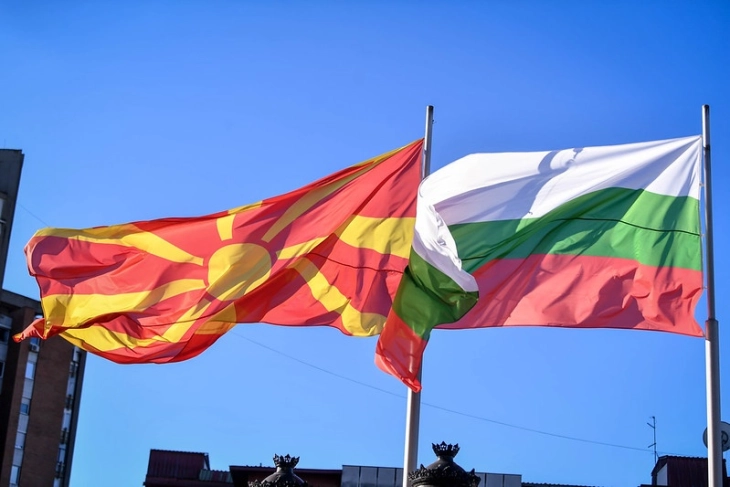Outstanding issues between Sofia and Skopje to be resolved through comprehensive document, so as not to have them reopened

Skopje, 21 February 2022 (MIA) – North Macedonia’s Foreign Minister Bujar Osmani told a press briefing on Monday that the country is at a more sensitive period in the negotiations with Bulgaria, and the dialogue will continue at the level of experts and political groups. He added that the goal is to close the issue once and for all through a comprehensive document that would be a protocol or a declaration, containing all documents important to all parties.
“The Portuguese proposal remains a valid solution by which negotiations continue. We want to close this issue once and for all and not have it reopened. Neither do we want to resolve the issue in parts, but have a comprehensive document that would be a protocol or a declaration containing all documents important to all parties, and thus wrap up the issue. This is a guarantee to us that there will be no opening of new issues,” Osmani stressed.
The Minister added that in line with the 2017 Treaty there is an instrument – an intergovernmental commission that signs a protocol on its implementation every year.
“It is a document made of three parts. Such a protocol has already been adopted and signed by the commissions. The first part is sector cooperation, the second political, i.e. plans for next year, and the third is the work of the historical commission. This is in line with the Treaty. One protocol has already been signed. We failed to organize an intergovernmental commission because the dispute escalated and we didn’t have the opportunity. However, the document is in the spirit of the protocols that are adopted between the two governments in accordance with the treaty, which set its implementation,” said Osmani.
He mentioned that a new round of political talks was held at the highest level, which presented again the positions of both sides, adding that communication has also been established with European partners in the meantime.
In response to a question whether some of the bilateral issues currently negotiated between Skopje and Sofia would become part of the negotiating framework, Osmani said the EU is the first to decide on the negotiating framework because EU members need to approve it.
“All 27 members need to approve it. Some members are very sensitive to the issue of bilateralizing the European process, to including anything in the negotiating framework. They need to align it and say “yes” first, so that we could accept it. The negotiating framework can neither be adopted without them nor without us. That is why we’re now aligning bilaterally as well – what would be acceptable to us in the negotiating framework, and what would be acceptable to the member states,” Osmani pointed out.
He noted that the country’s principle in the negotiations is that nothing is agreed until everything is agreed, i.e. this phase is about setting out positions in terms of what could be acceptable or not.
North Macedonia’s Prime Minister Dimitar Kovachevski and his Bulgarian counterpart Kiril Petkov met at the sidelines of the Munich Security Conference on Friday, expressing satisfaction from the progress of bilateral cooperation while saying it would intensify.
During a Munich Security Conference panel on Sunday, Kovachevski said North Macedonia is committed to finding mutually acceptable solutions and has taken all necessary steps to unblock the EU enlargement process.
“In the spirit of European good neighborly relations, the Bulgarian Prime Minister Petkov and I, in the two months since we both became Prime Ministers, have intensified the talks between North Macedonia and Bulgaria, sincerely willing to foster closeness, cooperation and trust, which we believe will lead us to solutions to our bilateral issues,” Kovachevski said, adding that if the EU shows absence or weakness in the Western Balkans, then third parties will have more opportunities to fill that gap, which is extremely important in terms of geostrategy.







